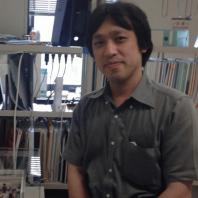![]()
![]()
Research Support Office Research Advancement Division. Tokyo University of Agriculture and Technology
| TEL | +81-42-367-5944 |
|---|---|
| FAX | +81-42-367-5946 |
This program is supported by MEXT’s scientific technology human resource development fee grant, "Program to Disseminate Tenure Tracking System".
Home > Tenured Faculties > Asano Ryutaro

Asano Ryutaro

| Affiliation | Institute of Engineering |
|---|---|
| Division | Division of Biotechnology and Life Science |
| Research field | Applied bioengineering |
| Keyword(S) | Protein engineering, Antibody engineering, bispecific antibody |
| Url | http://web.tuat.ac.jp/~tanpaku/index.html |
| Research experience | ・Apr.2000-Nov.2002: Research Associate, Cell Resource Center for Biomedical Research, Institute of Development, Aging, and Cancer, Tohoku University |
|---|---|
| Educational background | ・Mar.1999: Bachelor of Engineering, Biomolecular Engineering, School of Engineering, Tohoku University |
| Awards | * The latest information is shown at the member's website. |
| Selected papers and publications | * The latest information is shown at the member's website. ・Asano R., Kuroki Y., Honma S., Akabane M., Watanabe S., Mayuzumi S., Hiyamuta S., Kumagai I., Sode K., Comprehensive study of domain rearrangements of single-chain bispecific antibodies to determine the best combination of configurations and microbial host cells. MAbs, 10(6), 854-863 (2018) ・Kimura H., Asano R., Tsukamoto N., Tsugawa W., Sode K., Convenient and Universal Fabrication Method for Antibody-Enzyme Complexes as Sensing Elements Using the SpyCatcher/SpyTag System. Anal. Chem., 90(24), 14500-14506 (2018) |
Although antibodies have been used as molecularly targeted agents for difficult-to-treat diseases such as cancers, the high production costs associated with mammalian expression systems continue to be a drawback. In addition, the clinical efficacy of conventional IgG antibodies is limited. I have made efforts to develop recombinant small antibodies and antitumor cytokines as novel cancer therapeutic agents, and especially focused on small bispecific antibodies, which can induce specific antitumor effects by cross-linking between cancer cells and lymphocytes, and they now attract worldwide attention. I found that a humanized small bispecific antibody (Ex3) that targets epidermal growth factor receptor (EGFR) on tumor cells and CD3 on T-lymphocytes had marked anticancer activity. Further, the function of Ex3 was enhanced by fusion with the human Fc region, multimerization, domain rearrangement, and affinity maturation; a combination of these modifications showed at least additive cytotoxic effects. Interestingly, merely rearranging the domain order of Ex3 induced substantial cytotoxic enhancements, even though the structural format remained the same. For the development of Ex3 as a novel cancer therapeutic agent, I am working to exploit an alternative host cell system and molecular modifications to facilitate purification. I also try to develop a platform for the construction of utilized biologicals and apply these techniques in biosensing field.
Thanks to the plentiful assigned laboratory space, start-up funds, and also clerical work support, I could move several equipments and arrange research environment without stress. I think that it is an extremely good program especially for researchers who will conduct a laboratory for the first time. In this program, the tenure posts are prepared for all researchers, thus it is expected that the research will be promoted through friendly competition, not competition for the posts. This program is also promising that interdisciplinary research will be promoted through periodic exchange meetings.
One of the important mission of the Department of Technology is to produce useful things. I also have engaged in development of biologicals, especially of recombinant therapeutic antibodies based on an artificial protein design; however, the harder I studied, the more I realized it's very difficult. Now, I met the field of the biosensor. Besides addressing the study on recombinant therapeutic antibodies, I am also working to develop utilized biosensors using protein engineering.